Puppy Care
Caring for a new puppy may seem like a daunting task as you arrive home. Don’t worry – we’ve got you covered! We’ve put together a list of some the basics to get you started.
Caring for a new puppy may seem like a daunting task as you arrive home. Don’t worry – we’ve got you covered! We’ve put together a list of some the basics to get you started.

If you have a relatively short drive of 2-3 hours or less, you shouldn’t have to stop for a potty break. This is best if it can be avoided. Puppies should not be exposed to areas where dogs have been that may not have been vaccinated or are sick. It is definitely not worth the risk of exposing him or her to a virus – if you have a long journey, your best bet is to put a puppy pad or two on the ground and keep your puppy confined to them.
Puppies sometimes get car sick. Feeding them during a trip will make them more miserable than if they are a little hungry. Best to give them time to settle in at their new home before offering food. If you are driving a long distance, you can offer a little water at a time. Again, the point is not to cause stomach upset when they are already stressed from being in a new place, with strangers on a long car ride.
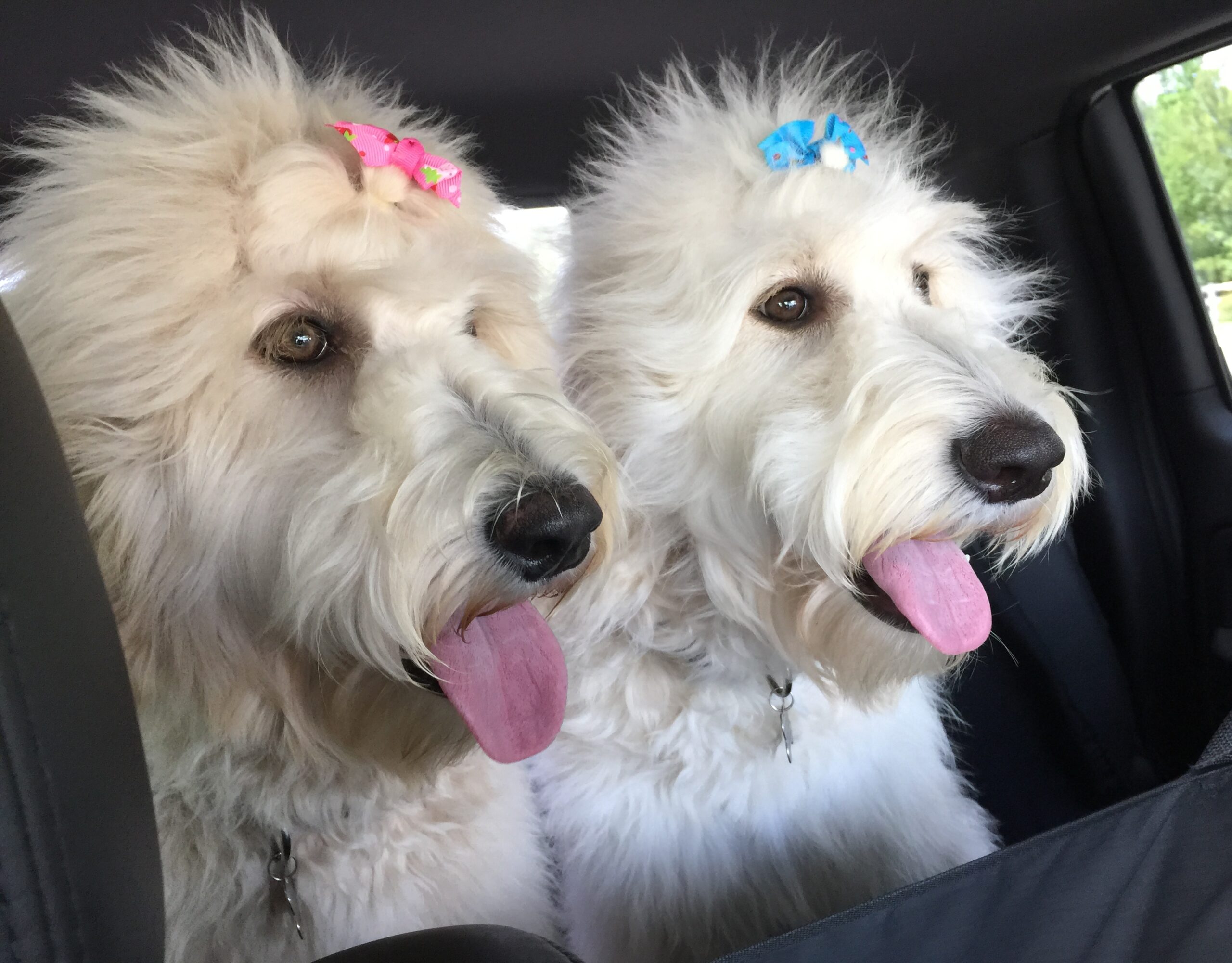
The first night can be a little scary for your new puppy. The best way to put your new puppy at ease is to put him in a crate next to your bed. If you have a wire crate, drape a blanket or towel over all sides except the front so the puppy feels more secure. Place something soft, like a bath mat in the crate, then put down a puppy pad, then an old towel. In the event of an accident, you should simply have to wash the towel, and replace the puppy pad.
We also recommend putting something for the puppy to snuggle up to in the crate with him – maybe an oversized stuffed animal (a washable one!) or even a rolled-up towel – your puppy is used to snuggling with its siblings. It is normal for your puppy to cry the first night or so. If you continue this same routine, he will quickly realize that this is a safe spot, and the crying will not last past a quick minute or two in the next few nights.

It is important to know that when you take your puppy home, your puppy will have had only one of three shots required for full vaccination. Before being fully vaccinated, your puppy is susceptible to infectious / contagous diseases that could be extremely harmful, if not fatal.
Choose your Vet carefully. Do not take your puppy to a park, rest stop, fast food area, pet store, etc. until you receive the all clear from your Vet. There are a lot of dogs that frequent those areas and some may be sick. When you take the pup to the vet, keep your puppy on your lap at all times or in a crate. The waiting room is almost always full of sick pets waiting to be seen by the vet.
Socialization is important but be sure that your puppy is introduced to healthy, vaccinated playmates. If you simply can’t wait to take your puppy out before the vaccination process is complete, ask your Vet for a Titer test to determine if the pup’s immune system is primed. This typically takes about 5 days.
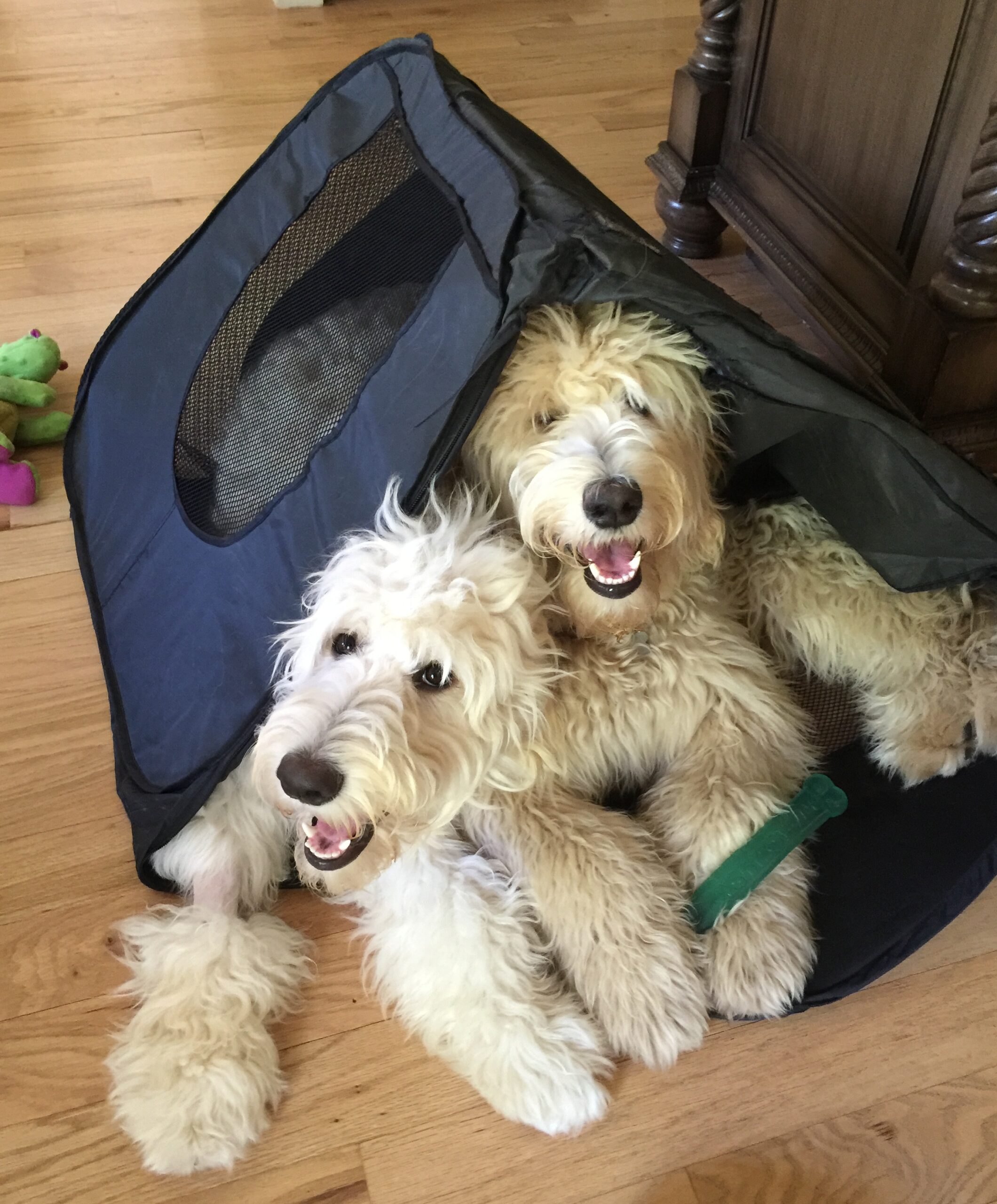
Feed your puppy a high quality food made for puppies for the first year. They should be fed 3-4 times per day. Let her eat as much as she wants for about 15-20 minutes and then put the food away until her next feeding. We’ll give you a sample bag of Taste of the Wild Puppy food when you pick up your pup. If you wish to change the puppy to another type, please do so gradually so you do not cause your puppy stomach upset. Their current schedule is approx 7 am, 11:30am, 3:30-4pm and 8pm. Food and water is put away at 8pm. A great place to order puppy food and other items is chewy.com. They ship right to your door and the prices are very competitive. Check the quality of your dog food at the Dog Food Advisor website. We recommend feeding your puppy a food that is rated at least 4 stars throughout his/her life.
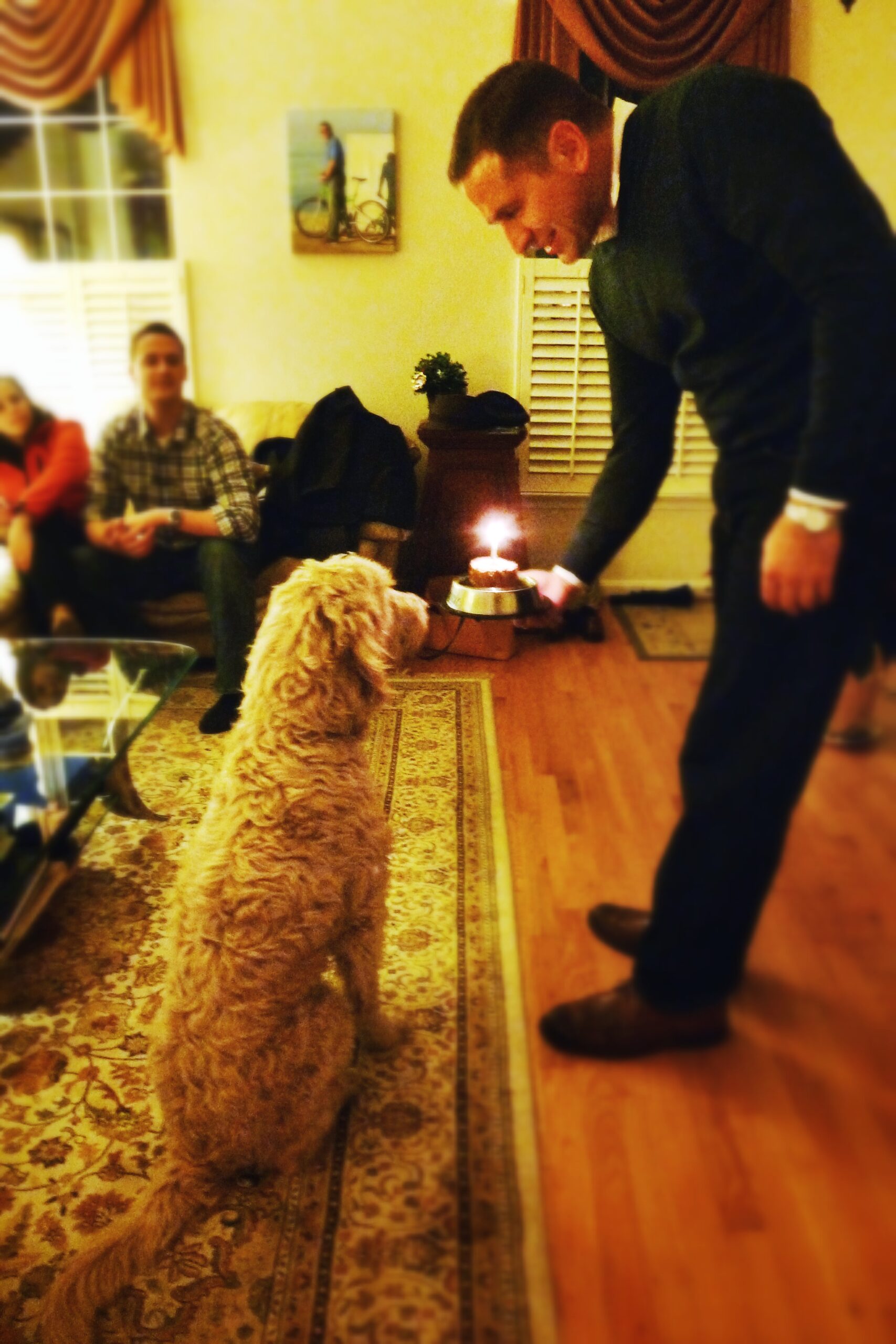
We do not give puppies treats when they are with us. We have only enough time to wean them and introduce them to soft and then solid foods. When you start them on treats, please do so gradually. Too much, too quickly will cause stomach upset. Quality treats that have no corn, wheat or soy in them are recommended. Break them into small pieces.
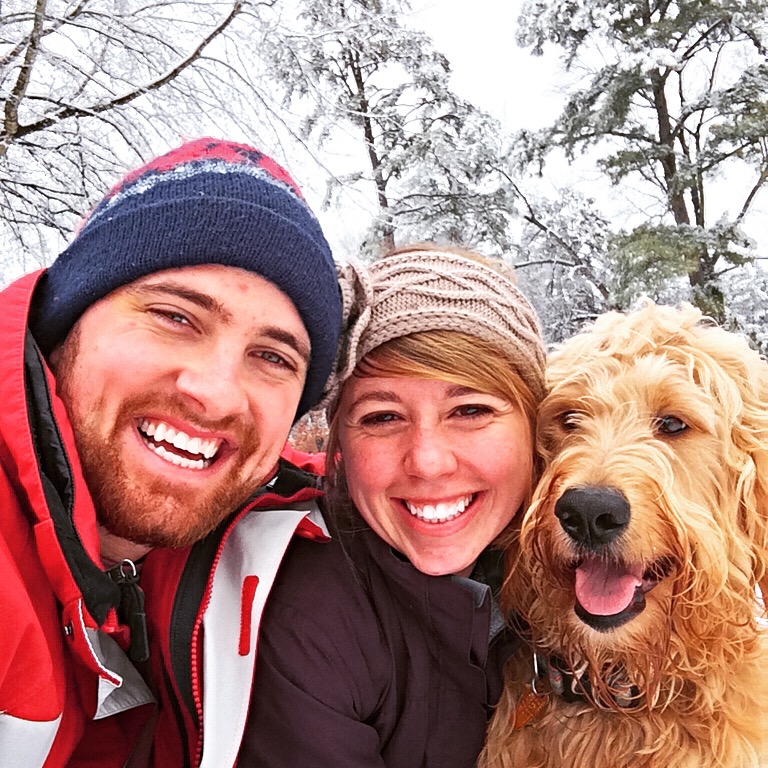
Please discuss Heartworm treatment with your Vet. Your puppy will not be given oral or topical Heartworm Preventative during their first 8 weeks.

Some puppy parents prefer to take their puppy to the groomer. You can schedule that every 4-6 weeks. If you are comfortable with trimmers, you can trim pup’s hair yourself.
Be sure to keep your puppy’s nails trimmed. You can bath your puppy every 3-4 wks. Over-bathing can dry your puppy’s skin. We use Johnson & Johnson’s baby shampoo for our dogs and puppies.
Invest in a good grooming brush. You can brush your pet often. Twice per week would be ideal. Pets can develop skin irritations or have a scratch or cut that might otherwise go unnoticed so this is the perfect time to give your pet a once-over!

Cocker Spaniels are prone to ear infections due to an ear canal that is slightly more narrow and their beautiful long ears which can hinder air circulation. It is strongly recommended that you clean your pup’s ears weekly to avoid this condition. You can find ear cleaning solution at any pet store or any department store that sells pet supplies. Keep the inner ear free of excess hair that can trap dirt and debris. We recommend cleaning your Goldendoodle puppy’s ears once per week as well!

Talk to your vet about signs and symptoms of worms to keep your puppy healthy and comfortable. Before leaving us, pups are wormed 2-3 times. If you take your pup to a dog park or any place where there are other dogs, consider worming your puppy occasionally.
External parasites are no strangers to dogs and pups. The two most common are fleas and ticks. Discuss flea and tick control with your vet. We use Frontline Plus on all of our adult dogs during flea and tick season. We do not give young puppies under 8 weeks of age oral or topical flea or tick remedies.
Pups naturally carry a small amount of protozoans in their gut flora. Stress can throw off the balance. The first sign is typically loose stool. Take your puppy to the Vet if you notice a change in their stool. Medication is inexpensive and you’ll notice results within 24 hrs.
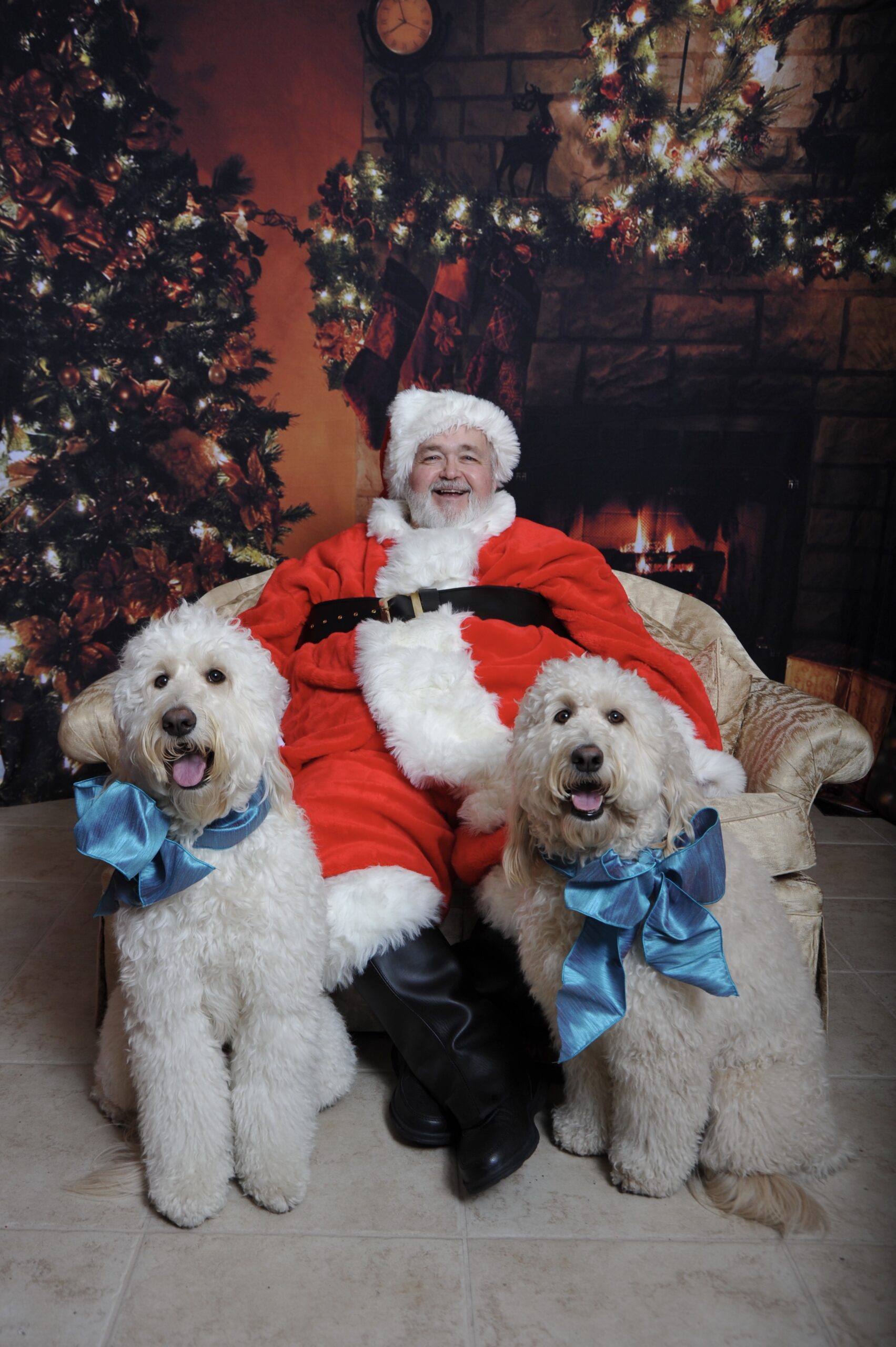
By contract, all of our puppies are to be spayed or neutered.
Females that are not spayed not only endure heat cycles, which as an owner can be a challenging time, but by spaying your female her chances of developing breast cancer are decreased and she will be less likely to develop urinary tract infections. This is usually recommended by 8 mos of age.
If you have an intact male he may be more likely to roam or fight, and to develop testicular cancer and prostatitis. Neutering is done at approx. 6-8 mos of age.

Your puppy will have had a Distemper and Parvo vaccination at 8 wks. Moms pass antibodies to their puppies through colostrum. It’s typically not until some time after 9 weeks that this protection is gone and puppies are able to have a positive immune response to a vaccine. Two thirds of puppies will have a positive immune response after the second shot, given around 11-12 weeks of age. 99+% are immune after the 3rd set, given at approx 14-15 weeks.
This is all age related. It’s best to Titer before giving a third that might not be neccessary. Vaccination protocols are changing based on current research. We follow AAHA guidelines and Dr. Jean Dodds Protocol for our dogs. She’s published quite a few articles on Vaccinations and all are worth reading. We do not Microchip. You’ll want to read on the subject, discuss the pros and cons with your Vet and decide what’s best for your puppy.